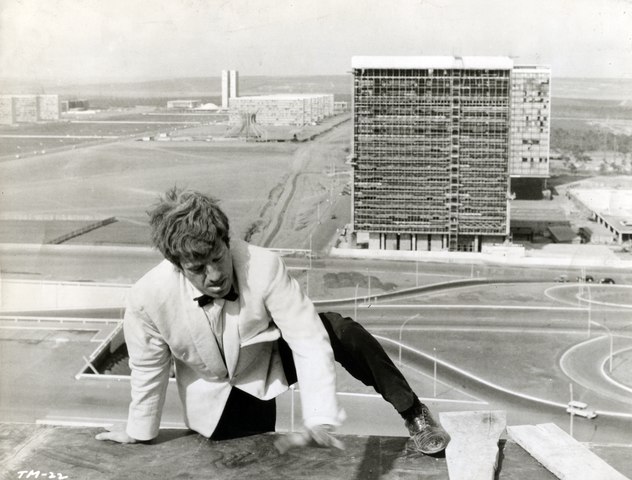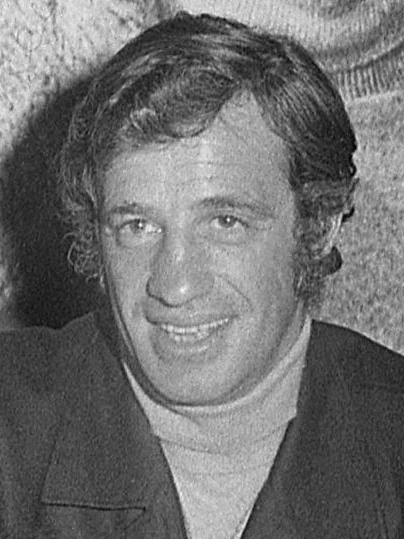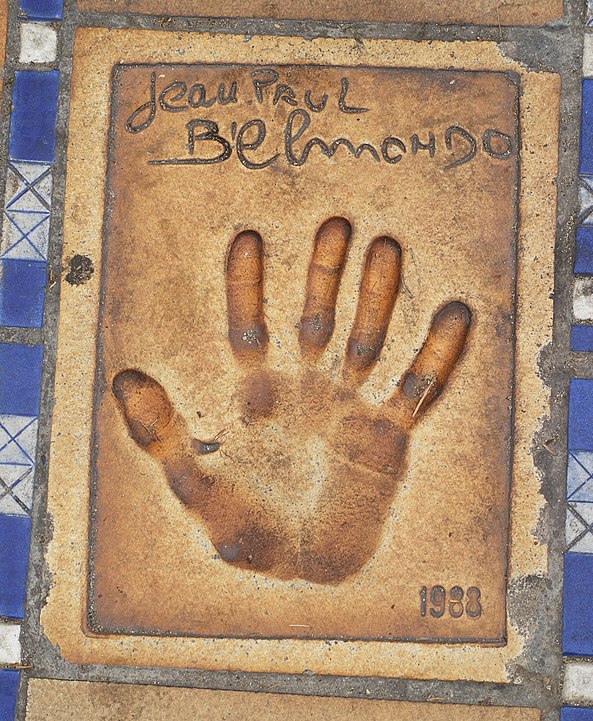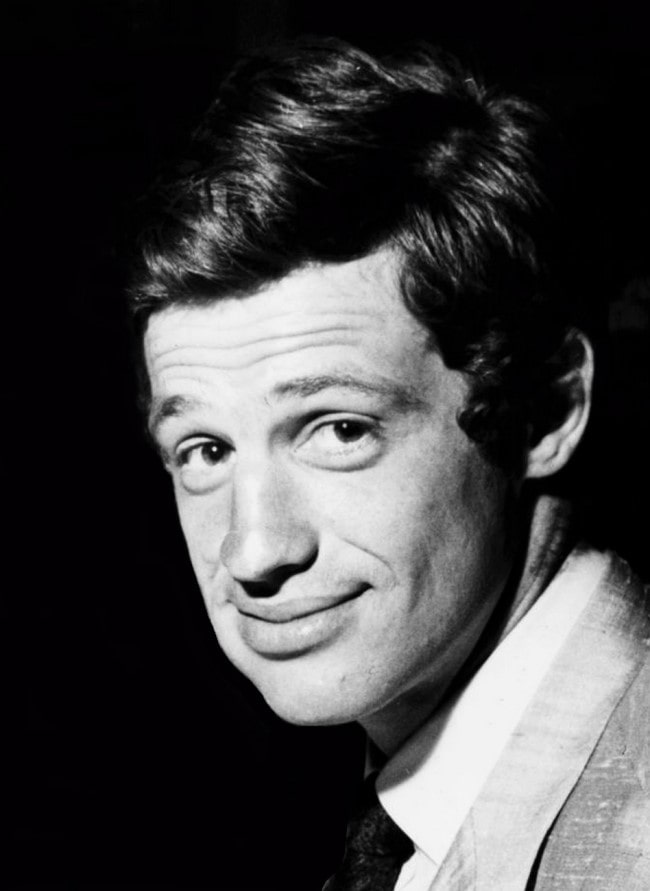Jean-Paul Belmondo: Passing of the People’s Movie Star, An Appreciation
- SUBSCRIBE
- ALREADY SUBSCRIBED?
BECOME A BONJOUR PARIS MEMBER
Gain full access to our collection of over 5,000 articles and bring the City of Light into your life. Just 60 USD per year.
Find out why you should become a member here.
Sign in
Fill in your credentials below.
Film star Jean-Paul Belmondo has died at age 88. Even his advanced age doesn’t give a full sense of the impact of a career that lasted well over half a century. In the golden age of French cinema, from the 1960s through the 70s and into the 80s, there were a handful of male actors who captured the French public’s imagination. Yves Montand radiated intelligence and suffering integrity, and was a political activist (yet always remained faithful to his origins as a song-and-dance man). Alain Delon was feline, nearly androgynous, and in real life projected the image of a sybarite and world-class art collector. Gerard Depardieu embodied the unruly passions of post-68 France, and was a bon vivant, iconoclast and vintner. Jean-Paul Belmondo just wanted to be a movie star. He worked hard at it, and was happy to achieve it.
Of Italian immigrant stock (like Montand), born and raised in Neuilly-sur-Seine, Belmondo famously was a boxer before he was an actor. He started his acting career before the New Wave, in the late ‘50s: he was featured in films by pre-Nouvelle Vague directors like Marcel Carné (Les Tricheurs) and Marc Allegret (Soit Belle et Tais-Toi). But it’s with the New Wave that Belmondo will forever be associated. Jean-Luc Godard cast him in A Bout de Souffle (Breathless), in which he played a petty criminal. Though he imitated a Bogey-type character and was in love with an American femme fatale (played by Jean Seberg) he was unmistakeably French. Paradoxically, the partial Americanizaton, as well as an intellectual side, is precisely what made him a new-style Frenchman. Breathless took the world by storm and changed the movies. (No Breathless would have meant no Bonnie and Clyde, which would have meant no New Hollywood)

Belmondo filming That Man from Rio in 1963 (C) Unknown, Public Domain
Belmondo starred in a second instant classic directed by Godard, Pierrot le Fou. There he played a man burning the existential candle at both ends, and finally blowing himself up. It might have been a symbol of Godard himself (and a whole cohort of artists, intellectuals and militants) who had a rage to live differently and thought they’d be dead by 30. Not unlike Bob Dylan, who thought the same thing, but went on to live 55 years (and counting) after his famous motorcycle accident, Godard would have a long, prolific career. But Belmondo didn’t really become his “fetish actor”, in the way Jean-Pierre Léaud did with François Truffaut (although Belmondo did make one more film with him, Une Femme Est Une Femme).
Instead, during this period, Belmondo went on to make films with an astonishing number of great and near-great directors. He was in (to give a very partial list): Les Doulos (Jean-Pierre Melville), Web of Passion (Claude Chabrol), Classe Tous Risques (Claude Sautet), Moderato Cantabile (Peter Brook), Un Nommé La Rocca (Philippe de Broca), Two Women (Vittorio de Sica), Peau de Banane (Marcel Ophuls), Is Paris Burning ? (René Clément), Stavisky (Alain Resnais), L’Animal (Claude Zidi). For all that, one didn’t have the sense that Belmondo was obsessed with deepening his art or even his craft. He was like one of those boxers from the 1940s and 50s who fought dozens of matches as a matter of course, and finished their career with a record of 60-30-10. Belmondo was the Jake La Motta of the French cinema. He also mirrored the work ethic of many ordinary French people in a time before generous vacations, maternity and paternity leave, and RTT “rest days”.

Jean-Paul Belmondo at dinner at the ‘Taverna Flavia’, Rome 1971. Photo by Archivio Cicconi/Getty Images. Public domain.
In the latter part of his career, the old toughness mellowed into geniality. However, always a physical actor, Belmondo continued to frequently do his own stunts, once hanging from a helicopter. The grayer, but not not quite grandfatherly, actor played in innumerable lighter films, many of them successful, not so many critically acclaimed: Le Marginal, Hold-Up, Claude Lelouch’s Itinéraire d’un Enfant Gaté, Lelouch’s version of Les Misérables, Patrice Leconte’s Une Chance sur Deux. This Belmondo wasn’t one of those actors you saw at the Cinémathèque or in a Latin Quarter art-house, but rather the Gaumont multiplex or better yet, on TV. Towards the end of his career, when his big-screen appeal dimmed, he turned to made-for-TV productions. He also returned to the stage in the 1980s, playing in the impresario Robert Hossein’s large-scale spectacles, Kean and Cyrano de Bergerac.

Belmondo’s handprints at the Palais des Festivals et des Congrès (C) Marco Bernardini, (CC BY-SA 3.0)
Aside from seeing Belmondo on screen, the French public enjoyed reading about him in the fan magazines and tabloids, nothing particularly scandalous or tragic, just the ups and downs of their fave (that he was also a cultural monument was by the way). He became a commander of the Légion d’Honneur, won a César for Best Actor and a Cannes festival Palme d’Honneur for lifetime achievement. But to the French he was their Bebel and they loved him. Jean-Paul Belmondo incarnated the special insouciance that has inhered in the French soul from time immemorial. He gave a damn, but not too much.
Lead photo credit : Jean-Paul Belmondo (C) eystone/Hulton Archive, Public Domain
More in Actors, cinema, French movies, Jean-Paul Belmondo, movie, Stars





